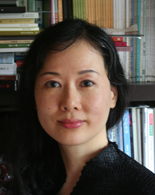We are proud to announce the publication of Busy Koreans: Essays on Contemporary Culture and Society of South Korea in East Asian Context by Dr. Hyewon Kang Kim (Director of The Cultural Studies Centre of East Asia in Hong Kong). Dr. Hyewon Kang Kim is a noted Korean scholar for her extensive work on Cultural Studies.
A prior work by Dr. Hyewon Kang Kim, entitled Contemporary Korean Culture (Peking University Press), was selected as a ‘Phoenix Great Book’. Her objective and thorough analysis has been lauded for enhancing the status of Korean Culture above its previous focus on the Hallyu (Korean Wave) or perceptions of it as a mere imitation of Chinese culture. The book is the English edition of her Korean-language work To have Dim Sum for Jeomsim (Korea University Press), a winner of the 2013 Ministry of Culture, Sports, and Tourism’s list of ‘The year’s Excellent Books’ for its role in addressing important questions such as “What is Culture?” and “How does culture change with society?”
Busy Koreans, the first English publication on Korean culture and society written from an East Asian perspective, seeks to provide English-language readers with an opportunity to learn more about the topic from an East Asian perspective.
This book Busy Koreans is the English edition of an award-winning Korean book To Have Dim Sum for Jeomsim, which was selected for The Year’s Excellent Books in the social science category by the Ministry of Culture, Sports and Tourism of the Korean Government in 2013.
This book consists of five chapters. The first chapter, entitled The Ever-evolving Nature of Culture, is designed to explain the basic attributes of culture before discussing each cultural aspect in greater detail. The topics that will be discussed here are: how East Asian culture has been affected by Orientalism, how economic development has influenced cultural changes in South Korea and China, what secrets are behind the Korean Wave, why South Korean literature has been so serious, why golf has become a status symbol in South Korea, and a few more.
The second chapter, entitled The Ways of Thinking, covers East Asians’ beliefs. The topics that will be discussed in this chapter are: why South Koreans share a strong sense of group consciousness, how Confucian traditions have affected South Koreans, why Christianity has become so popular in South Korea and China, what myths South Koreans have, why South Koreans have an inferiority complex of a marginal state, and so on.
East Asian’s linguistic habits will be throughly examined in the third chapter. Since I have been doing a research on Korean linguistics as a part of my doctoral thesis, this chapter may be a little bit more scholarly than the others. The topics that will be explained in this chapter are: why South Koreans use Chinese characters less than the Japanese, why South Koreans call their country the nation of the Han, and how Chinese characters and the Korean alphabet have influenced the evolution of the Korean language, and so on.
The rituals and lifestyle of East Asians will be compared in the fourth chapter. Here, festivals, food culture, the lifestyle of sitting on the floor and drinking habits will be discussed. This book also covers the current social issues in South Korea in the last chapter, entitled Understanding Social Issues through Culture. In this chapter, the social issues such as credentialism, lookism, mammonism and regionalism will be explained.
Preface
Chapter 1. The Ever-evolving Nature of Culture
Hierarchy of Cultures
Culture and Economic Development
Popular Culture
Culture and Literature
Horse Racing and Golf
Chapter 2. The Ways of Thinking
Individualism and Collectivism
The First Confucius Institute
Church Cross and Fortune Cat
Horse Riders
Travelogues
Chapter 3. Linguistic Culture
The Korean and Chinese Languages
Foreign Words and Native Words
Speech and Writing
Chapter 4. Lifestyle and Rituals
Moon Cakes and Songpyun
Excuses for the Gangneung Dano Festival
Topoki Research Center and Jjajangmyun Museum
Siheyuan and Hanok
Wines
Chapter 5. Understanding Social Issues through Culture
Credentials and Looks
Money
Local Color
Impression of South Korea and Its People
Bibliography
The Source of the Articles
Glossary
저자 : 김혜원 Hyewon Kang Kim
인문학자 (비교문학, 비교문화), 시인 서울 출생. 1997년 홍콩의 중국 반환 바로 전에 홍콩으로 이주한 후 대학 강단에서 한국어학과 한국학을 강의하며 홍콩 학계에서 한국학 발전의 기초를 세웠다. 1998년 홍콩과학기술대학HKUST의 강사를 거쳐, 2001년 홍콩 城市大學City University of Hong Kong 어문학부 한국어학과 주임교수로 홍콩 대학사상 최초로 한국어학 전공을 개설했다. 그 후 2007년 홍콩대학The University of Hong Kong 인문대학에 한국어학과를 설립하고, 한국학 주임교수와 명예연구교수를 역임하면서 언어와 문학 그리고 문화연구에 대한 활발한 저술활동으로 홍콩을 비롯한 중화권 학계에서 주목을 받았다. 2011년부터 홍콩 유일의 한국학 연구소인 동아세아문화연구... more





